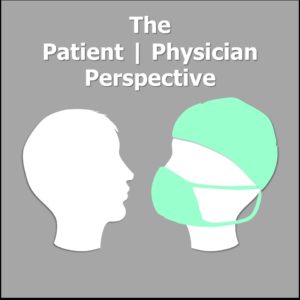During preclinical years, UCLA has a so-called “Doctoring” course where we practice interviewing standardized patients and learn how to develop the patient-physician relationship. Essentially, this is an opportunity for us to learn the soft skills of physicianship. We spend our sessions discussing how to best break bad news to a patient, how to counsel them and how to build trust. Even though the environment and situations can seem contrived and some dismiss developing soft skills as a waste of time, this class was actually one of my favorite parts of MS1.
Most patients begin their journey to a diagnosis in one of two places — their primary care physician’s (PCP) office or the emergency room. I was no different. I started the spring break of my junior year of college in my PCP’s office, describing to her all of the symptoms I had felt in the past three months: my face being noticeably rounder, the appearance of acne on my previously clear skin, feeling tired all the time but not being able to fall asleep at night and more hair falling out of my scalp. She was skeptical of my complaints — not that the symptoms didn’t exist, but that they were probably attributable to the college lifestyle and stress from school. She suggested watching my diet more carefully, an exercise regimen and making time for facials. “It shouldn’t be a big deal. Do you have any other questions, or is that all?” I sat there, stunned at her response. Thoughts flew across my mind — did she really think I would be here if I didn’t feel like my symptoms were serious and that there was something really wrong with my body?
One of the first skills we learn in Doctoring is how to take a patient history. We run through OLDCAART, HEADDSSS, and other relevant mnemonics. We learn to validate patients’ feelings, while mentally sifting through what is and isn’t important in what they tell us. We are taught to ask open-ended questions and to listen to their stories. However, in practice, we are often focused on asking our own specific questions, or we are limited in the time we have to listen fully to the patients’ stories.
As a patient, I was lucky to have been in a position where I could advocate for my own health. I had comprehensive health insurance, I was familiar with and comfortable navigating the health system, and I knew I could insist on getting referrals to specialists until someone could help me figure out what was wrong.
I was bounced to an ears, nose, and throat (ENT) physician, and though my symptoms were barely related to her specialty, her demeanor as she listened to me automatically made me feel at ease and cared for. She heard the urgency and desperation in my voice, and her empathy was palpable. I was terrified because I had no idea what was going on with my body. She made me feel like I was being heard and that my concerns were valid. By the end of the visit, she was fairly certain that I needed to be at the endocrinologist’s office.
Unfortunately, not all patients are this privileged, and failure to listen to this subset of patients has the potential for much more costly consequences. It’s tempting to go down a checklist during a patient’s visit for the sake of efficiency, but the checklist doesn’t capture the entire picture. I’m a firm believer that the patient knows their body the best, and that the very least we could do as physicians is to listen and not dismiss their concerns. Maybe their symptoms really are a result of something trivial, but maybe they aren’t, and I would rather be the doctor who listens carefully to everyone just to catch this one patient than to miss them in my haste.
The Patient | Physician Perspective
Lessons learned from both sides — a column exploring the qualities of a physician from the perspective of a physician in training, through the lens of a patient.

